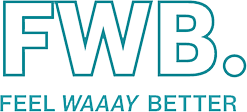Why Your Sleep Gets Wrecked After Drinking
Share
Think that nightcap is helping you sleep better? Your brain might have other ideas. While alcohol can knock you out initially, it wreaks havoc on your sleep in ways that directly contribute to feeling terrible the next day. Understanding this connection can help explain why some hangovers are about more than just headaches and nausea.
The Alcohol Sleep Trap: Fast Asleep, Poor Rest
Here's the paradox: alcohol does help you fall asleep faster by increasing adenosine (your brain's sleepy chemical) and enhancing GABA (regular brain activity and promoting relaxation), which slows down neural activity. For every gram of alcohol per kilogram of body weight, you fall asleep about 6.4 minutes faster. Sounds great, right? The problem is what happens after you drift off.
Alcohol fundamentally disrupts your sleep architecture. The natural progression through different sleep stages your brain needs to recover. Normal sleep cycles through four stages every 90-120 minutes, with the most restorative REM (rapid eye movement) sleep typically starting about 90 minutes after you fall asleep. But alcohol throws this entire system off track.
REM Sleep: The Missing Recovery Stage
REM sleep is where your brain does its most important recovery work. This is where your brain is processing emotions, consolidating memories, and essentially defragmenting your mental hard drive. When you drink, alcohol suppresses REM sleep early in the night and delays its onset by an average of 18 minutes. At moderate to high doses, total REM sleep can be significantly reduced throughout the entire night.
This isn't just about feeling less rested. REM sleep is crucial for emotional regulation and mental clarity. When you don't get enough, you wake up more irritable, anxious, and mentally foggy. These are symptoms that overlap significantly with hangover effects. That "hangxiety" you feel? Part of it is literally your brain being emotionally dysregulated from poor REM sleep.
The Rebound Effect: When Your Brain Fights Back
As alcohol wears off during the night (usually after 4-6 hours), your brain attempts to compensate by flooding your system with extra REM sleep. This "REM rebound" often brings vivid, intense dreams and frequent awakenings. Your sleep becomes fragmented and lighter, which is why many people wake up around 3-4 AM after drinking and struggle to get back to restful sleep.
This rebound effect also affects your neurotransmitters. While alcohol initially enhances calming GABA and suppresses stimulating glutamate, the rebound floods your brain with glutamate while reducing GABA. It's like your brain's chemical balance ping-ponging between extremes, leaving you feeling jittery and anxious when you wake up.
The Breathing Problem: Sleep Apnea and Alcohol
Alcohol acts as a muscle relaxant, which sounds relaxing but creates serious problems for breathing during sleep. The muscles that keep your airway open become overly relaxed, increasing the risk of snoring and sleep apnea, where breathing actually stops temporarily during sleep. Even if you don't have diagnosed sleep apnea, alcohol can cause similar breathing disruptions that fragment your sleep and reduce oxygen levels.
Studies show that people who consume just two standard drinks daily are more than twice as likely to experience sleep apnea symptoms18. Men seem particularly susceptible to this effect. Poor oxygenation during sleep directly impacts how you feel the next day, contributing to that groggy, brain-fog feeling that characterizes many hangovers.
Body Temperature and Sleep Quality
Alcohol also disrupts your body's natural temperature regulation during sleep. While you might feel warm initially, alcohol actually causes your core body temperature to drop, and your body's natural sleep-related temperature cycling gets thrown off. Quality sleep requires precise temperature regulation, and when this system is disrupted, sleep becomes less restorative.
The Vicious Cycle: Poor Sleep Makes Hangovers Worse
Here's where things get really interesting: poor sleep quality doesn't just result from drinking, it actually makes hangover symptoms worse. When you're sleep-deprived, your body produces more inflammatory compounds, your pain sensitivity increases, and your cognitive function drops. All of these factors amplify traditional hangover symptoms like headaches, nausea, and mental fog.
Research consistently shows that people who get poor quality sleep after drinking report more severe hangover symptoms the next day, even when controlling for the amount of alcohol consumed. It's not just the alcohol making you feel terrible... It's the combination of alcohol's direct effects plus the cascade of problems from disrupted sleep.
Recovery Strategies That Actually Work
Understanding alcohol's impact on sleep reveals why certain recovery strategies are effective. Proper hydration and electrolyte balance help your body regulate temperature and maintain cellular function during sleep. B-vitamins support neurotransmitter function, helping your brain recover from the GABA-glutamate disruption. Antioxidants can help counter the oxidative stress that contributes to both poor sleep and hangover symptoms.
The key insight? Hangover recovery isn't just about fixing what alcohol did to your body. Hangover recover is about supporting all the restorative processes that got derailed while you slept.
Ready to protect your sleep and feel better tomorrow? Feel Way Better is designed to support your body's recovery processes, helping minimize the sleep disruption that makes hangovers so much worse.
